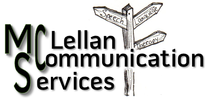 Today I want to talk a bit about 'waiting' and how slowing down and giving others more time can help them communicate. The concept of slowing down in life, or stopping to 'smell the flowers' is certainly not new. Many speech and language blogs talk about the importance of waiting when working with children with communication difficulties. But waiting is not just important for kiddos with language delays or disorders. It is also worth thinking about in terms of adults with communication disorders such as Aphasia or Apraxia of Speech. 'Waiting' is the idea that when we make a comment or ask a question, instead of expecting an immediate response, we should wait several seconds before verbalizing again. The rule of thumb is often to wait 10 seconds before saying more. Children with language delays and disorders benefit from waiting because it gives them a chance to understand what you have said, and possibly to form a response. It can take young children much longer to form a response or process a message than it takes a fluent adult speaker. Waiting is also useful in communications with adults with Aphasia. Aphasia is a language disorder that occurs as a result of injury to the brain, most often as the result of a stroke. Aphasia can look different depending on the type and severity of the disorder. Sometimes Aphasia means people have trouble understanding spoken or written language. Other times, people with Aphasia have difficulty finding the words to say and with expressing verbal or written messages. Often, there are difficulties with both understanding and expressing language. Waiting allows a person with Aphasia more time to put his or her message together. But it goes beyond just asking a question and slowly counting to 10 in your head. People with Aphasia may also be slower to get individual words out, or they may need to try a number of times to get a word or phrase 'right'. It is important not to jump in and finish the word for them (unless they specifically ask for that). Finding the words to say, or processing a message that a person has heard and then forming a response can take time. Try to incorporate a little more waiting in your daily interactions with kids, especially if your child has a language delay or disorder. And if you have an older loved one who also struggles with communication in any way, wait a little longer for that person too. A little extra time could make all the difference.
8 Comments
|
AuthorWrite something about yourself. No need to be fancy, just an overview. Archives
May 2021
Categories |
Proudly powered by Weebly

 RSS Feed
RSS Feed